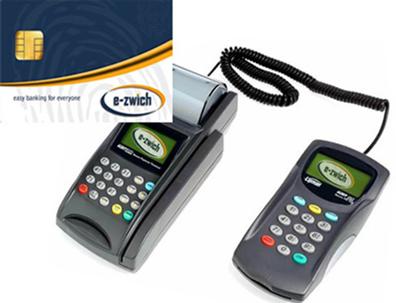Government Pays Nursing, Teacher Trainee Allowances via e-zwich
 Government has resumed the payment of nursing and teacher trainee allowances using the e-zwich biometric system. The move will ensure transparency, a proper audit trail and prevent duplications on the payroll.
Government has resumed the payment of nursing and teacher trainee allowances using the e-zwich biometric system. The move will ensure transparency, a proper audit trail and prevent duplications on the payroll.
The payment of the allowance to the trainees has been handed over to the Student Loan Trust Fund (SLTF), the body mandated to disburse loans to tertiary students.
The SLTF has been using the e-zwich to disburse students’ loan over the years and is the same system that will be used to pay the trainee nursing and teachers’ allowance.
The use of e-zwich to disburse such funds is also expected to inculcate in the students, the habit of using electronic payment cards and eventually discourage the over reliance on cash for transactions.
Commenting on the development, the Chief Executive Officer of Ghana Interbank Payment and Settlement Systems (GhIPSS) Mr. Archie Hesse, commended government for allowing these payments to be made through e-zwich.
He said the move is in furtherance of the cash-lite agenda and urged the students not to only receive the electronic funds on the card but to also use the card to make payment and transfer of funds.
GhIPSS has been setting up agents to offer e-zwich services to complement the financial institutions in order to make the service readily available to the teaming number of people, who now use it. A number of banks’ Automated Teller Machines (ATMs) are also being reconfigured to accept e-zwich cards, just to increase the number of channels through which e-zwich can be accessed.
Mr. Hesse said GhIPSS will continue to work to ensure that e-zwich card holders enjoy smooth service at all times. He explained that there are designated staff, who visit the agents, the financial institutions and the ATMs to ensure efficient delivery of service.
The GhIPSS Boss urged the banks to see the payment of nursing and teacher trainee allowance as an opportunity to win over new depositors. He therefore challenged them to find innovative ways to make the use of e-zwich cards an enjoyable experience that will endear students to their banks.
Currently, student loans, National Service allowance, Youth Employment Agency remunerations and the various government social intervention programmes are carried out through the e-zwich with the nursing and teacher trainee allowance being the latest.
This implies that huge sums of transactions will be done through the e-zwich.
Mr. Hesse also urged shop owners to get hybrid Point of Sales (POS) devices in their shops so that they can also tap into the phenomenal growth that the e-zwich is experiencing.
The hybrid POSes accept both e-zwich and domestic cards.
Mr. Hesse said GhIPSS is its part, will continue to promote the biometric smart card and all other electronic payment channels to ensure that Ghana truly migrates into an electronic payment society
Source: GNA

